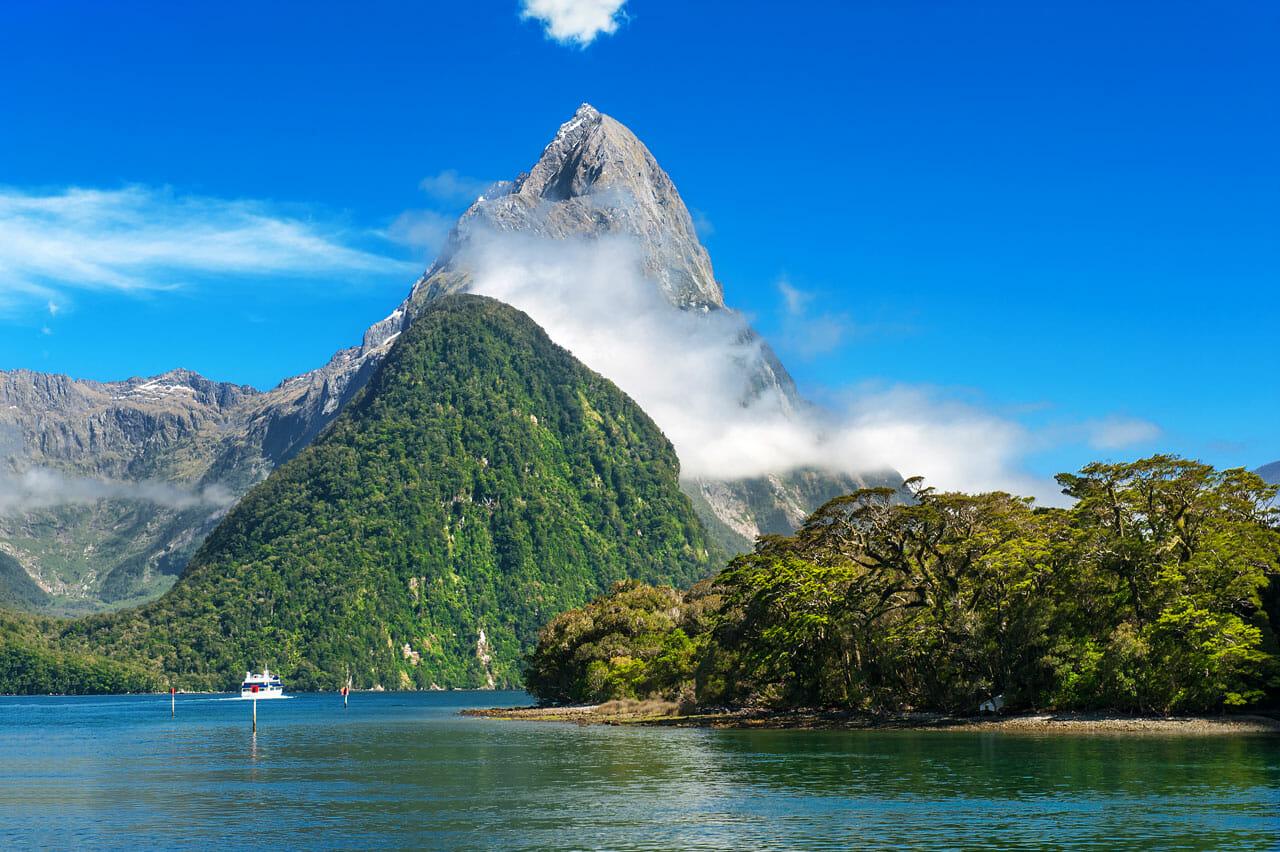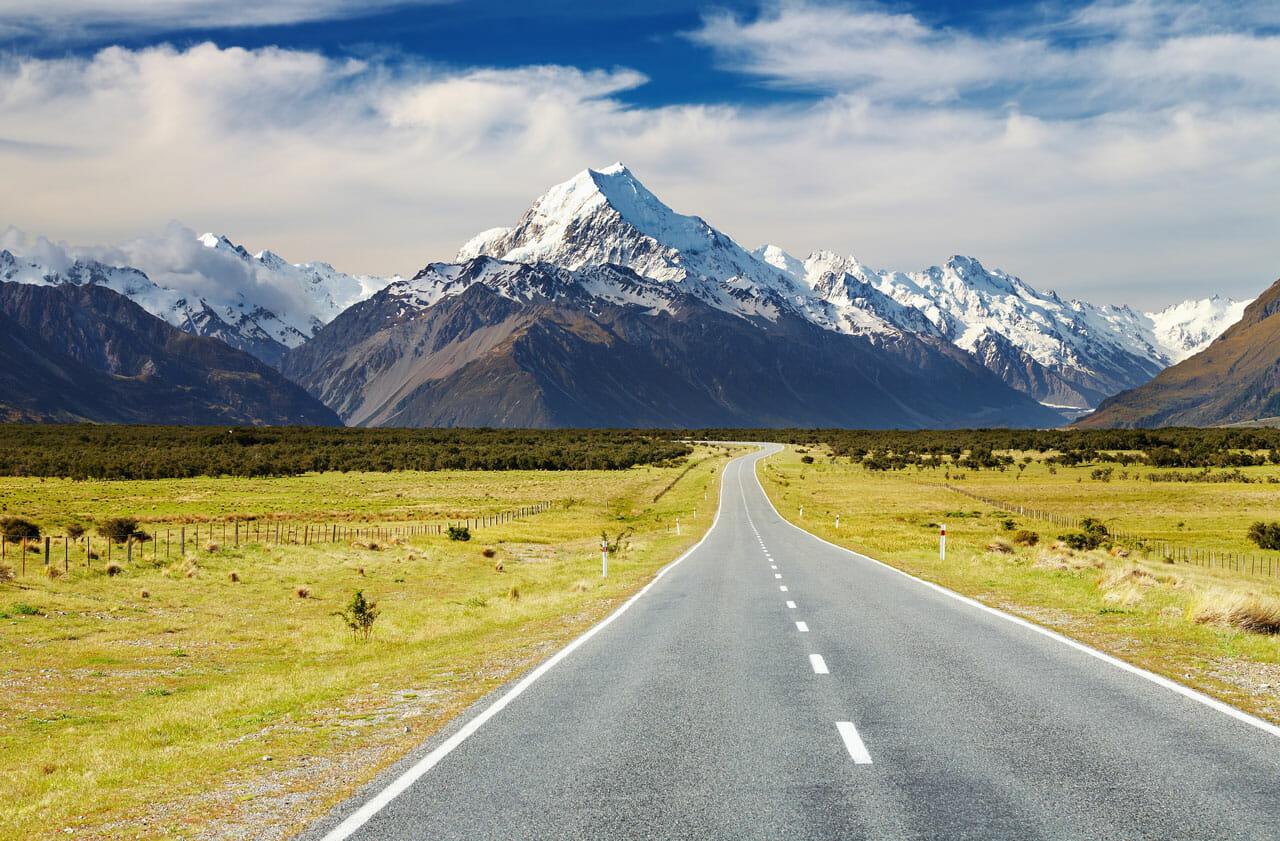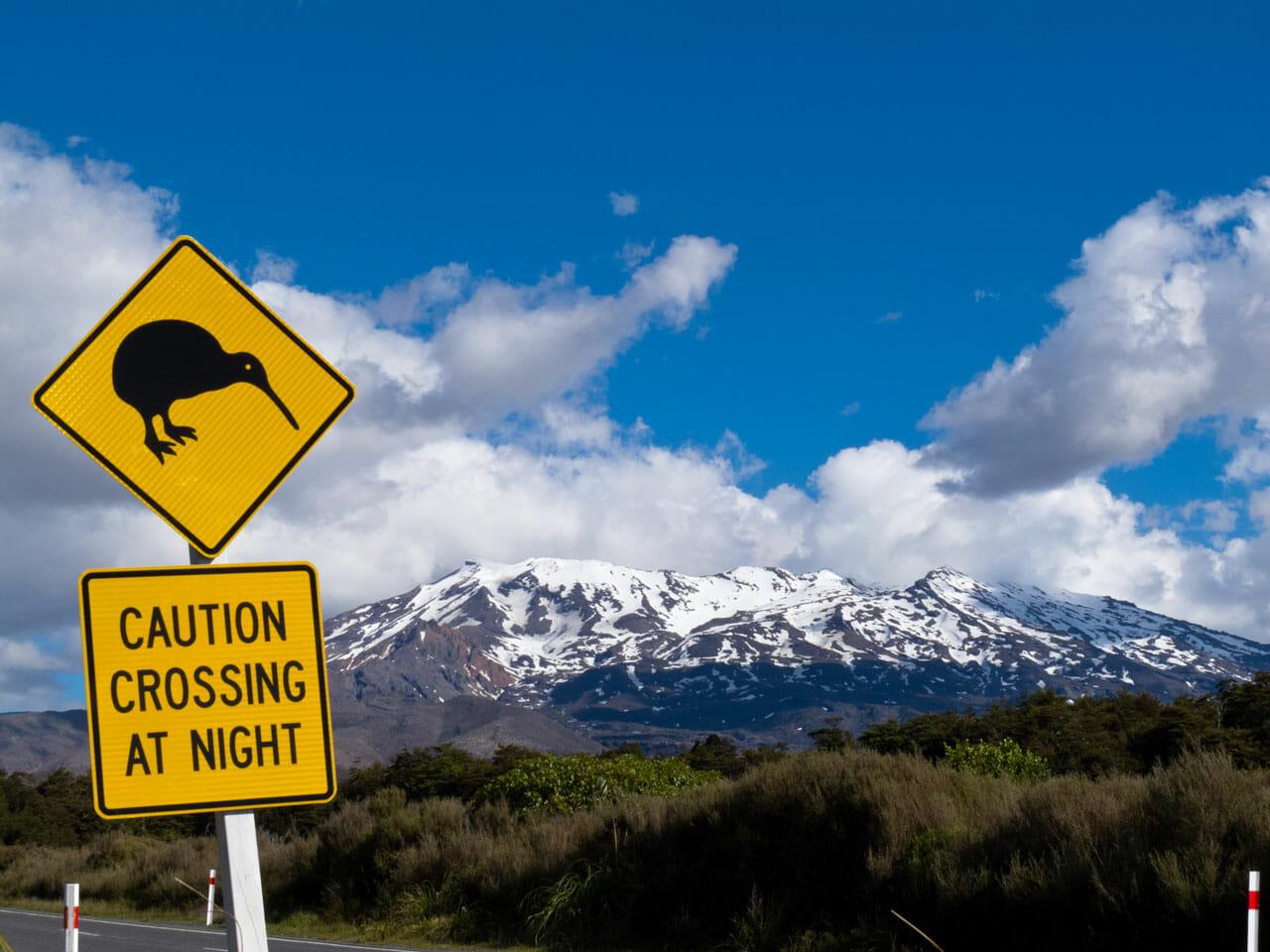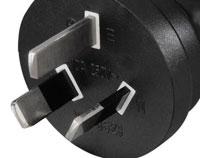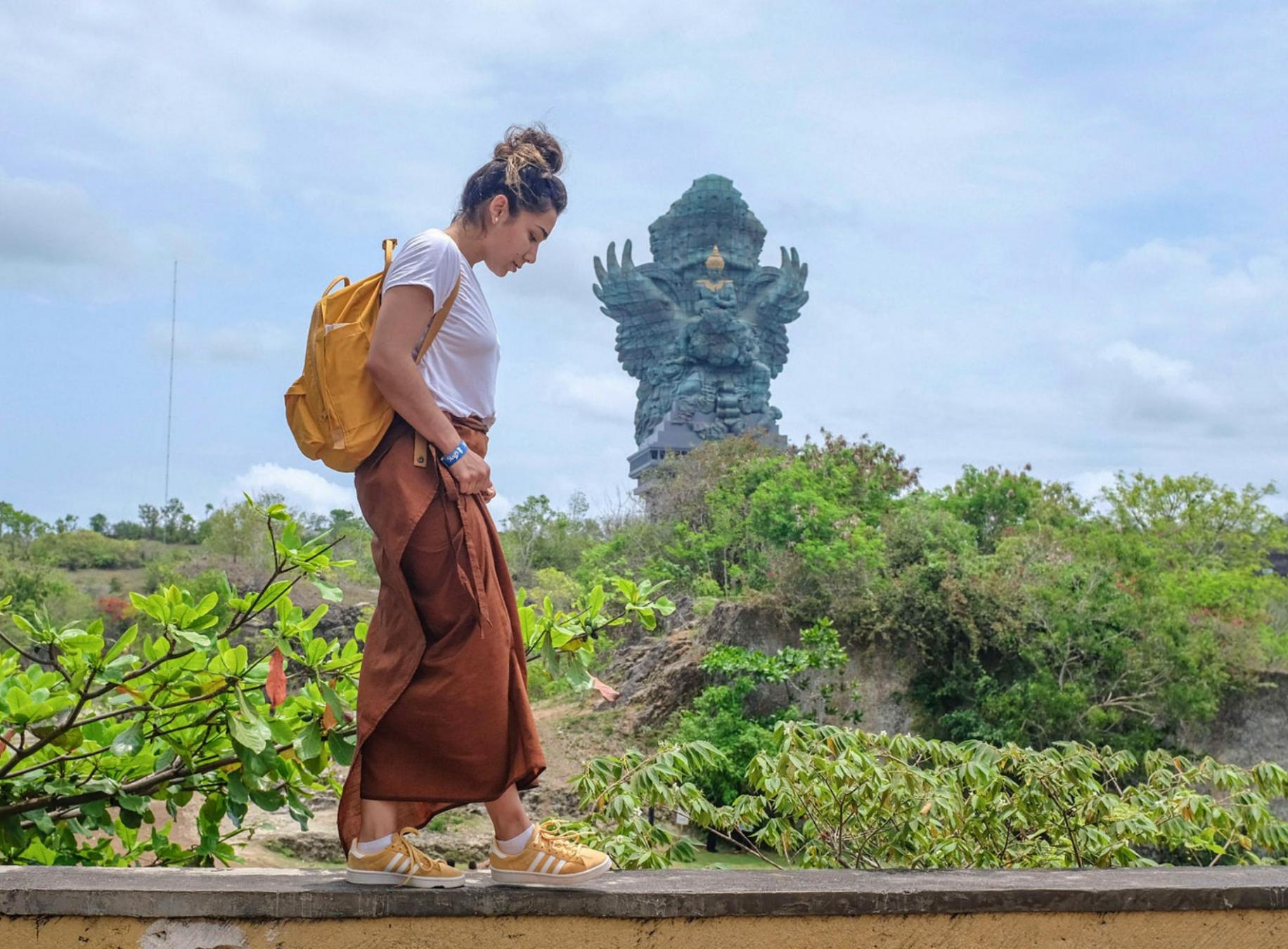New Zealand travel tips: How to plan your New Zealand round trip and make it an unforgettable experience!
In this article you will find many New Zealand travel tips with all the important information you need to know before you start your trip. You're sure to have many thoughts about New Zealand: epic landscapes, Lord of the Rings, lots of sheep, Maori and, of course, Kiwis.
New Zealand is the country for all outdoor fans. On both the North and South Island you can go on fantastic hikes, snowboard and ski in the New Zealand Alps and surf the waves of the Pacific. Get a kick out of bungee jumping in the adrenaline capital Queenstown or relax while fishing in New Zealand's breathtaking waters.
But New Zealand also has a lot to offer culturally. In many places you can experience Maori culture up close and immerse yourself in the life of days gone by. Have you ever seen a haka? This is a war dance that is still performed at festivals today. The All Blacks, the New Zealand rugby team, perform this dance before their matches. Very impressive.
When you travel through New Zealand, the landscape is constantly changing. Pure variety. If you fall asleep in the car or on the bus and wake up an hour later, you really feel like you've missed something. At least that's what happened to me. That's why it only happens once.
Reading tip: Route for 2 weeks South Island New Zealand
Here you will find important questions and answers about a New Zealand holiday. Topics such as entry requirements, money, safety or transport: I have listed everything here.
Why New Zealand as a travel destination?
New Zealand is a destination that is very popular because of its unique nature and culture. Despite the long flight times, a trip to New Zealand is worthwhile because there is so much to discover.
If you love nature and being outdoors, you will love the diversity of New Zealand. No matter what your favourite outdoor activity is, you will have a lot of fun in New Zealand. Hiking, surfing, snowboarding, kayaking, rafting, scuba diving, skydiving, bungee jumping, caving, wildlife watching or horse riding - all this and much more is possible.
If you're a Lord of the Rings fan, you can visit different filming locations and build a customised New Zealand itinerary.
New Zealand is interesting because of the Work & Travel opportunities. Especially after finishing school or university, many take an extended break to backpack. Sabbaticals are also becoming increasingly popular as a way to get to know another country better. In one year there is definitely enough time to do this by travelling and working.
Tip for all New Zealand holidaymakers
If you are "Down Under" and can plan enough time, you should definitely make a stopover in the big brother.
If you don't want to miss out on city life, you can make a detour to Auckland, the "City of Sails". The smaller cities like Wellington, Christchurch and Dunedin also have a lot to offer.
My favourite, however, was Queenstown on the South Island: a small town with many cafés & restaurants (definitely go for a Fergburger ), located directly on the epic Lake Wakatipu and equipped with an extremely extensive range of adventure sports.
Lake Wakatipu near Queenstown - a dream
Wine growing area around Marlborough
Lake Wanaka and Mount Aspiring
All about New Zealand - Facts & Figures
Like Australia, New Zealand is a sovereign member state of the Commonwealth of Nations and thus has Queen Elizabeth II as its head of state.
The English name of New Zealand is "New Zealand" and goes back to the Dutch explorer Abel Tasman (Dutch: Nieuw Zeeland). The Dutch somehow had a penchant for naming new places with "Nieuw" + region in the homeland (in this case "Zeeland"). Another example of this is the name Nieuw Amsterdam for what is now New York.
When you travel through New Zealand, you will also often come across the word "Aotearoa". This is what the Maori call their country. Translated, it means "land of the long white cloud", which can be traced back to a Maori legend.
A total of only 4.25 million people live on 270000 km², of which 1.4 million already live in Auckland alone. Because of this very sparse population, you can still live in pure nature in New Zealand. The capital of New Zealand is not - as many people think - Auckland but Wellington.
In a worldwide comparison of quality of life, New Zealand is always in one of the top places. Especially in the categories of community, health, environment and life satisfaction, New Zealand regularly scores above average.
The indigenous people of New Zealand are the Maori, who are among the most adapted indigenous people in the world and make up about 15 % of the total New Zealand population. The Maori language is one of the official languages of the country, along with English and New Zealand Sign Language.
New Zealand's main sources of economic income come from the food industry, forestry, agriculture and tourism. Australia, China, Japan as well as other Asian countries are among the most important trading partners.
More facts about New Zealand:
Telephone area code: +64
German Embassy: Tel.: +64 4 473 6063
Currency in New Zealand: NZ Dollar (New Zealand Dollar): 1 € equals approximately 1.6 NZD
Time zone: NZST (New Zealand Standard Time), the time difference to Germany is between 10-12 hours depending on winter or summer time, whereby New Zealand changes the time on different dates than Germany does
Public holidays: On 6 February bank holidays "Waitangi Day", signing of New Zealand's constitution by Great Britain and 45 Maori tribal chiefs.
Where is New Zealand actually located?
New Zealand is an island nation "down under" and is located behind Australia as seen from Germany. In addition to the two main islands - the North and South Islands - many other smaller islands belong to New Zealand, such as Stewart Island in the far south.
Entry requirements, documents and flights
Do I need a visa for New Zealand?
To enter New Zealand you need:
A passport that is valid for at least 3 months and has at least two free pages.
A valid return ticket to Germany or a valid onward ticket (whether by land, sea or air).
Proof of sufficient financial reserves for the duration of your stay in New Zealand (approx. 1000 NZD per person per month).
Arrival and departure tax / Border Levy
From 01 January each traveller pays a fee on arrival in or departure from New Zealand.
Flight:18.76 NSD (excluding VAT)
Cruise ship:22.80 NSD (excluding VAT)
The fees are already included in the ticket prices.
Tourist visa for New Zealand
As a tourist in New Zealand you will receive a "visa on arrival" in the form of a stamp in your passport. The visa is valid for 3 months.
Working Holiday Visa
If you are between 18 and 30 years old, the Working Holiday Visa might be of particular interest to you. It allows you to study, travel or work in New Zealand for up to twelve months.
Other requirements besides the right age are an open return ticket and enough reserves to finance your stay (proof of 4200 NSD).
If you want to find out more about the Working Holiday Visa, check out the New Zealand Immigration website here.
Bio-security on arrival
As an isolated island nation, New Zealand has strict import regulations for food, animals and plants. As nice as the Kiwis are, when it comes to their ecosystem, they can't take a joke. Fresh and partly packaged food, especially vegetables, fruit and seeds, are forbidden. When you disembark at the international airports, you will be informed that you can expect heavy fines if you violate the regulations. Therefore: Declare everything you have with you on the Passenger Arrival Card. (Or leave it at home!) If in doubt, declare too much rather than too little. If you have fresh food with you, there are bins everywhere where you can dispose of it before bio-security.
After collecting your luggage, you will be taken to Bio-Security, where some of your belongings will be screened. Sometimes you will meet the cuddly beagles here, who have a very fine nose and are specially trained to sniff out food. Depending on what you have declared, you will be assigned to a queue. The process can be quick or take longer. In my case, potential carriers of bacteria and germs such as my camping equipment and hiking utensils were disinfected, for example. I was able to pick them up after a 15-minute wait.
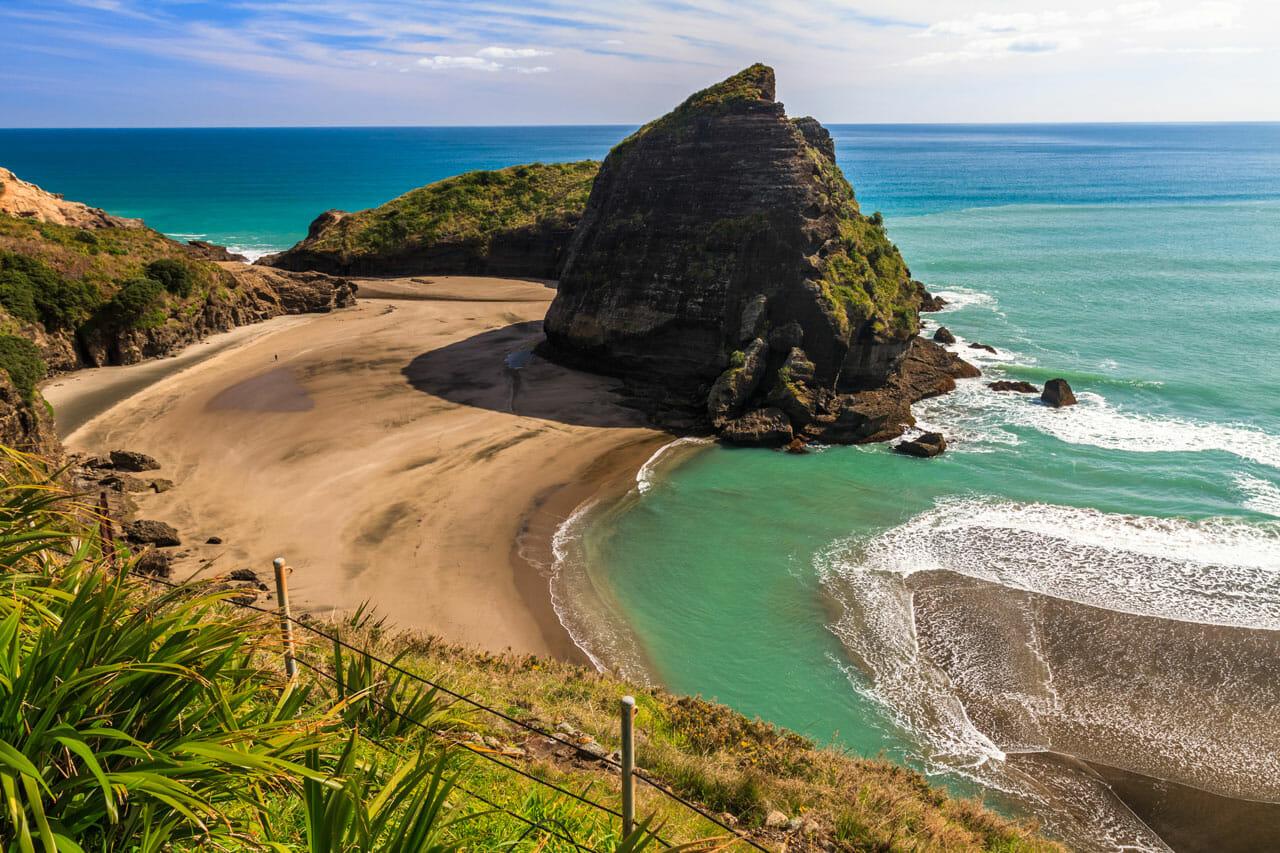
Recommended vaccinations for New Zealand
If you are travelling from Europe, no vaccinations are required for New Zealand. For travel to rural areas, the standard vaccinations of tetanus, diphtheria, hepatitis A and B, rabies and typhoid are recommended. Consult your doctor for more information. In general, you should check your vaccinations before each trip and update them if necessary.
View my first aid kit
What travel insurance do I need for New Zealand?
Many travellers don't ask themselves about travel insurance until shortly before departure. But then it is often too late. If you fall off a ladder shortly before your trip and break your leg or get seriously injured doing sports, you might lose a lot of money.
To make sure this doesn't happen to you, you can read here which travel insurance makes sense in advance (luggage insurance, travel interruption insurance, ...).
Questions about money and credit cards for your New Zealand trip
What is the currency in New Zealand?
The official currency is the NewZealand Dollar (NZD/). Unofficially, the New Zealand dollar is also called the Kiwi dollar, because a kiwi is depicted on the 1-dollar coin.
One New Zealand dollar consists of 100 cents. Coins are available in the amounts of 10 cents, 20 cents, 50 cents, 1 dollar and 2 dollars. Coins for the amounts 1 cent, 2 cents and 5 cents no longer exist.
The New Zealand dollar is also the official currency in the Cook Islands, Pitcairn Islands, Niue and Tokelau.
How do I take money to New Zealand - credit card or cash?
If you wish, you can exchange some cash at your local bank before your trip. In principle, however, it is sufficient to withdraw money with a credit card at the airport after your arrival.
→ My tip for credit cards without foreign fees for travelling
In general, ATMs are not a problem in New Zealand. During my trip, I never had any problems finding an ATM in time to withdraw money. Withdrawing money with a credit card was never a problem.
How expensive is New Zealand?
New Zealand is quite expensive compared to other countries in Asia or South America. Prices are very European or American. However, you can find accommodation for every budget. Ultimately, a lot depends on how you want to travel.
If you mainly stay in hostels or some of the free or very cheap campsites, cook your own food and avoid expensive tourist offers, you can still travel quite cheaply.
Probably the most expensive expense will be the flight to Auckland. New Zealand is a long way away (24 hours flying time). For short trips on a small budget, some destinations in Asia are more suitable.
Flights to New Zealand start at 500 euros, depending on the time of year (Flight booking tips), domestic flights from 50 euros. Rental cars cost from 9 euros a day (e.g. Cheap rental car) and a simple meal from 5 euros.
Find & book accommodation in New Zealand
The choice of accommodation in New Zealand is varied. From luxury hotel chains to farmstays to low budget hostels to nature campsites, you'll find it all. If you decide to go on a road trip, you will probably only stay in a hotel for the first and last nights and the rest of the time in a car or campervan. Good deals on hotels, bed and breakfasts and hostels can always be found on booking.com. Also you can find a hotel on tophotels.com as is also a valuable tool to explore.
Among the luxury options, Auckland, the largest city of the country, boasts multiple resorts and five-star hotels. You can explore a selection of premium Auckland Resorts to indulge in some exclusive amenities.
If you're planning to stay in Auckland and are seeking a luxurious experience, the Movenpick Hotel Auckland comes highly recommended. Located in the heart of the city, this hotel offers world-class services to ensure an unforgettable stay.
Transport
If you're not travelling in a rental car or camper van, you'll find every mode of transport from planes, trains, buses and ferries: travel is easy in New Zealand. However, you should book domestic flights and buses well in advance, and train travel can be quite expensive.
Public busesThebus network in New Zealand is the best and you can reach even small towns. The state buses are InterCity and Newmans and are very comfortable. Private companies such as Manabus / NakedBus, Atomic Shuttles (on the South Island) and Northliner Express (in the Northland) are no less well equipped and usually have good deals.
Backpacker busesWhilethe above mentioned buses really only take you from A to B, backpacker buses like Kiwi Experience or Stray offer a supposed full service. They organise your complete New Zealand tour and you can choose between different routes. Your accommodation and activities are booked directly in advance. This can make a lot of things easier, but in my opinion you are making a pilgrimage down well-trodden paths and most of the time it is really only about booze tours, which mainly young people take part in.
Renting a car or campervan in New Zealand
The choice of rental companies for a car, campervan or motorhome in New Zealand is huge and sometimes very confusing. That's why I recommend you think about what you're looking for in advance: should it be a small campervan with the bare essentials such as a bed and kitchen on board? Or a comfortable motorhome with its own toilet? Or will you be staying in a hotel and simply need a car? That narrows down the providers.
It's best to book your campervan, motorhome or car directly from Germany. If you want to book yourself, you can compare prices in advance on the websites of CamperDays or bestCAMPER and get an initial overview of the many providers.
Link-Tip: List of camper rentals in New Zealand
Our best tips for renting a campervan in New Zealand can be found here.
Buying a car or campervan in New Zealand
If you plan to stay in the country for more than eight weeks or even a few months, you should consider buying a car right away.
→ Link Tip: How to buy a car in New Zealand
For spontaneous travellers: Relocation Deals
Rental companies need their cars at different branches depending on demand. For example, many rent a car in Auckland and return it in Wellington. To be able to transfer the cars quickly and cheaply to other locations, they offer so-called relocation deals, especially in summer.
These offers vary completely from provider to provider: Often you pay a small fee to transfer the car from A to B. The price is very low. JUCY, for example, lent out its cars in December 2016 for just NZ$1! However, you often have conditions, such as having to transfer the car within a fixed period of time.
Hitchhiking
Hitchhiking, more commonly known in New Zealand as hitchhiking or hitching, is also still common. Hitchhiking is not a problem on the North Island, but it can sometimes take longer on the South Island in the more untouristy areas. Hitchhiking is also not without risk, of course. It is cheaper to look for a ride in advance online or in hostels.
Food and drink costs in New Zealand
In general, food costs in New Zealand are about the same as they are here. Dairy products and alcohol, for example, are much more expensive than usual. In general, you can save a lot if you look for special offers in the supermarkets and buy in larger quantities (3l milk pack instead of 1l).
A meal at a snack bar costs about 5 euros for fish'n'chips. In a restaurant you should plan on 15-20 euros.
Cocktails in a club in Auckland cost around €10, a glass of wine around €6 and beer from €4.
New Zealand is also known for good wine. You can get a mid-range bottle for 15 NSD (€9.80).
How much do you tip in New Zealand?
In New Zealand it is unusual to tip unless the service was really exceptional. Of course, waiters in restaurants and cafés are happy about the small bonus, because they are not paid very well. So if everything went well, feel free to leave a tip of about ten percent.
Delivery services and hairdressers don't usually get a tip. Neither do taxi drivers, but they are happy to round up the final price.
Must visit and absolute New Zealand tip: Visit Milford Sound Fjord Travelling around New Zealand on your own or with a tour operator?
You can definitely travel around the country individually. The transport network is well developed and finding your next accommodation is not difficult. The South Island of New Zealand is less densely populated, but the scenery is amazing. Especially if you want to get off the beaten track - e.g. a trekking tour lasting several days - you should prepare well.
In general, New Zealand is predestined to be explored with a rental car or camper van. This way, you can easily stop at epic spots between cities and explore the surroundings. You'll see one of the brown tourist signs every 10-20 minutes. It's almost always worth stopping there.
New Zealand is also easy to explore by taking one of the popular bus routes. If you just want to get from one city to the next, check out Intercity. If you're looking for adventure, new contacts and stops between cities, the Kiwi Experience could be just right for you. You can hop off the bus at any stop and stay until you want to move on (hop on hop off).
Domestic flights in New Zealand
Many tourists fly from Auckland (North Island) to Christchurch or Queenstown (both South Island). You can get cheap tickets with Jetstar and also with Air New Zealand with luck from 50 euros.
Car hire in New Zealand
In New Zealand, anyone with a driving licence can rent a car. It is best to obtain an international driving licence from your regional licensing authority before you start your journey.
Important! In New Zealand you drive on the left-hand side of the road. This requires some time to get used to.
Click here for tips on booking a rental car.
Road to Mount Cook - wonderful views, right? What language is spoken in New Zealand?
In New Zealand, English is spoken with the characteristic "Kiwi" accent. A basic knowledge of English is therefore definitely an advantage, even though you will most likely meet many Germans in New Zealand.
If you have trouble understanding New Zealanders, just ask politely if they can speak a little slower. Their accent is generally easier to understand than real Scottish or Irish English. At least that was my impression.
Besides English, Maori is also an official language in New Zealand. Many place names have kept their Maori names.
The most important Maori vocabulary Infobox:
Aotearoa - New Zealand
Ae - Yes
Awa - River
Āwhina! - Help!
Haere mai! - Welcome!
Haere ra! - Goodbye
Haka - war dance
Kainga - village, settlement
Kāore - No
Kia Ora - greeting, thank you (more as a greeting, no word for thank you)
Mana - respect, reputation, success
Maori tanga - Maori culture
Moana - sea
Moko - tattoo
Puke - mountain
Riu - valley
Roto - lake
Rua - cave
Tai - beach
Tangata - people
Tenā - please
Whare - house
Fun Fact: Taumatawhakatangihangakoauauotamateaturipukakapikimaungahoronukupokaiwhenuakitanatahu is the Maori name of a hill in New Zealand. It is considered the world's second longest name for a place.
How do I find flights to New Zealand?
There are no direct flights to New Zealand. You usually have to allow for one or two stopovers depending on the flight route.
How long does a flight to New Zealand take?
A flight to Auckland takes about 24 hours. Lufthansa, Hong Kong Airlines and Air China are airlines that fly to Auckland via one or two stopovers in Abu Dhabi, Shanghai, Beijing or Hong Kong, among others. Other flights are available with China Southern, Quantas, Emirates, Thai Airways and of course Air New Zealand.
Tips for booking flights here
Best time to travel to New Zealand
New Zealand is located in the southern hemisphere, southeast of Australia. Therefore, the seasons are the wrong way round. If it's winter here, it's summer in New Zealand. You should definitely bear this in mind!
Due to the large north-south extension, you will experience completely different climates at the extreme ends of the two main islands. In winter, winter sports enthusiasts on the South Island will be dreaming, whereas in summer, life at the northernmost end is dominated by a tropical climate.
What is the weather like in New Zealand?
Overall, temperatures are very mild all year round in most parts of New Zealand due to the proximity of the coast. Average temperatures in summer (December to February) are 20 - 25 degrees during the day. In winter (June to August), average temperatures drop to 12 - 16 degrees. The further north you are, the warmer the temperatures and vice versa.
I was in New Zealand from November to January, practically in the transition period from spring to summer. For me, the ideal time to travel. As New Zealand is extremely vast, I didn't notice any excessive hordes of tourists. However, I was mainly outdoors.
Best time to travel for outdoor activities
Whether hiking, surfing, swimming, sailing, fishing or sightseeing, the best time to travel for all outdoor activities are the summer months. This is the time of year with the most pleasant temperatures and the most hours of sunshine. However, due to the high UV radiation, be especially careful with too much sunshine.
Golden rule no. 1:
"Between eleven and three stay under a tree". Stay under a tree between eleven and three.
Golden Rule No. 2 : "Slip, slop, slap and wrap".
Slip on a shirt, slop on some sunscreen, slap on a hat, wrap on a pair of sunglasses.
Best time to go for winter sports
If you want to go to New Zealand to pursue your passion in the New Zealand Alps even during the German summer, then you should definitely travel to New Zealand between June and August.
The best ski resorts in New Zealand:
Christchurch - Canterbury
Mount Cook Mackenzie
Queenstown - Wanaka
Central North Island
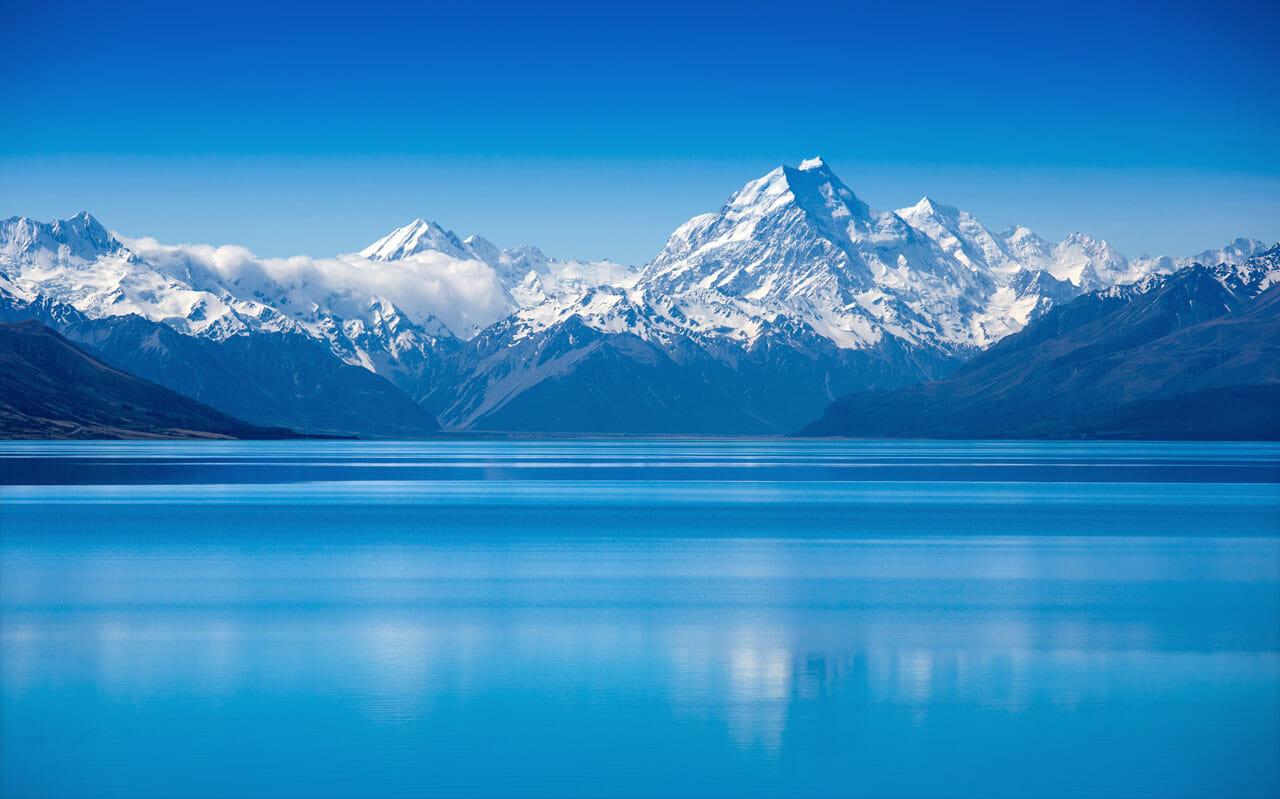
Germany - New Zealand Time Difference
New Zealand is in the NZST (New Zealand Standard Time) time zone. The time difference to Germany is +10 hours in German summer and +12 hours in German winter. As the time change takes place at a different time in New Zealand than in Germany, there are also a few weeks when the time difference is +11 hours.
Tip: It's best to check the current time difference with a website like Zeitzonen.de when you make an appointment to call home.
Packing for New Zealand
The weather in New Zealand can be very changeable, but is similar to our Central European weather. Remember that the seasons are opposite. If we are cold in winter, the Kiwis enjoy the summer sun. If you decide to go on a road trip, remember when packing that you will be outdoors most of the time. Accordingly, your clothing should be functional and practical.
A rain jacket, a thick jumper and weatherproof shoes are the basics. However, you don't have to travel to New Zealand completely dressed in Goretex and functional material. The most important thing is that you feel comfortable. If you're missing one or two items, you'll find plenty of outdoor shops locally or simply shop cheaply at the Warehouse.
To our detailed packing list for New Zealand
Food and drink with specialities
The country's specialities are partly Maori and partly European. You should definitely try a Maori meal prepared in a hangi. A hangi is an oven in the ground in which meat and vegetables are traditionally cooked.
Other specialities include fish'n'chips, roast lamb and bluff oysters. In addition, as in Australia, there are many different pies prepared with various savoury ingredients (e.g. meat pie or minced pie). The best-known New Zealand desserts include pavlova (cream and fruit tart), pikelets (pancakes), hokey pokey (toffee) and ANZAC biscuits (biscuits).
Safety: Is a New Zealand trip dangerous?
In general, New Zealand is one of the safest countries in the world to travel. A relatively low crime rate, virtually no poisonous animals, hardly any endemic diseases and a very good health system underline this fact.
Of course, there is no such thing as a 100 % safe country and something can happen in New Zealand too. But even in the media you rarely hear about crime in New Zealand. And that is saying something.
I have always felt safe in New Zealand. Very few people have told me about someone breaking into their car or camper van. But the risk of this is probably no higher than in Portugal or Spain.
Therefore, in principle, the same safety recommendations apply as at home and in any other country. Nevertheless, I advise you for every trip to also check with the Foreign Office for current travel and safety advice. Read this article to find out more about travel safety.
Attention Kiwi crossing! You will often see this sign. Here at Mount Ruapehu Travel plug: Which adapter do I need in New Zealand?
For New Zealand you need a plug adapter to charge your electronic devices. The mains voltage is 230 volts and the mains plug type I is used. However, you can also use the required adapter for the neighbouring countries in Australia and Fiji.
If you are looking for a universal travel adapter for all your travels, I can recommend this travel adapter.
